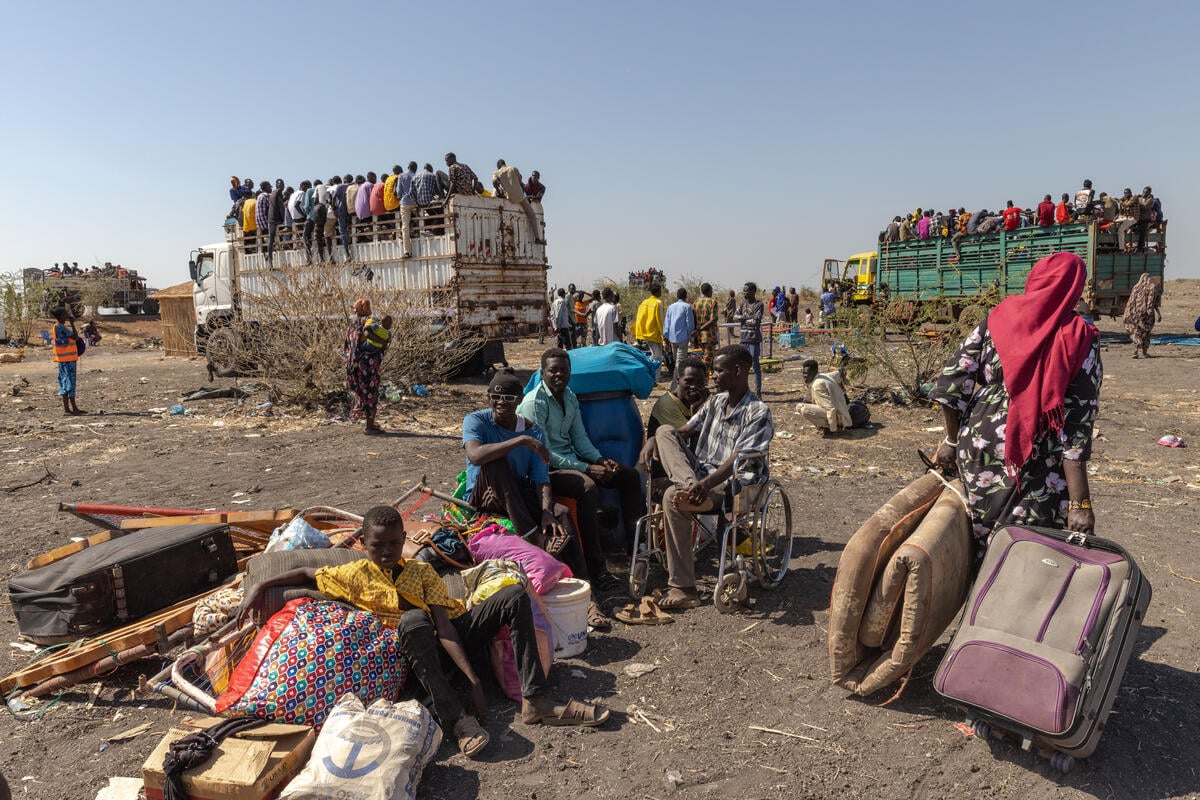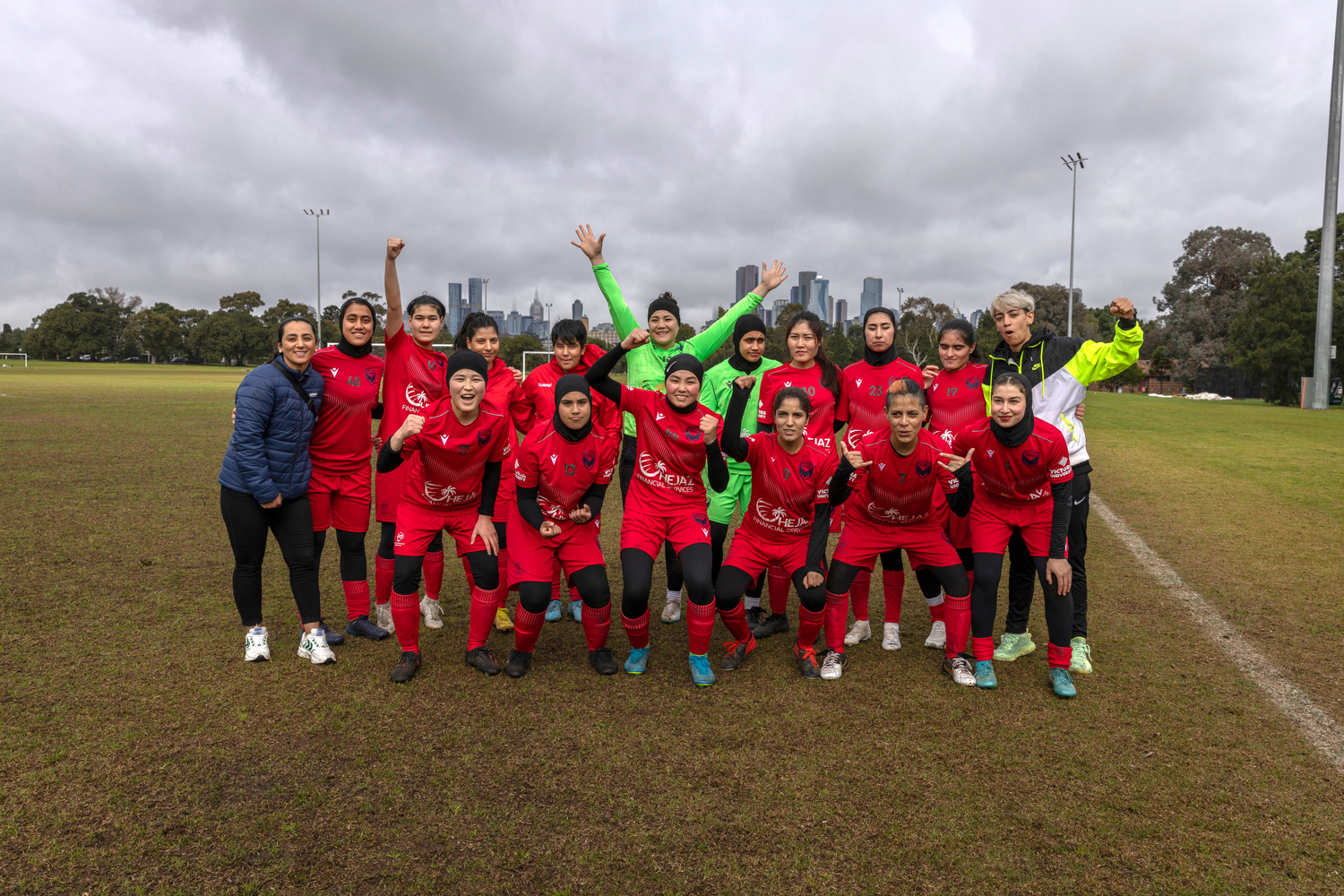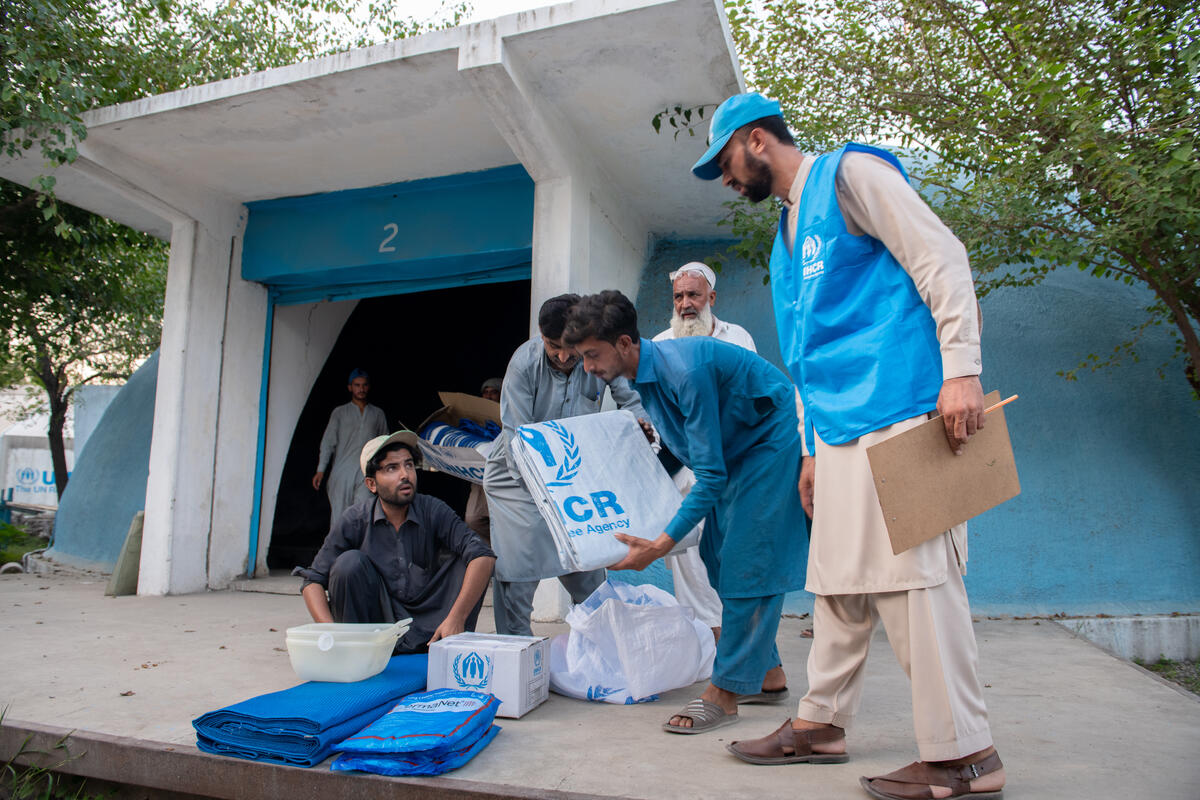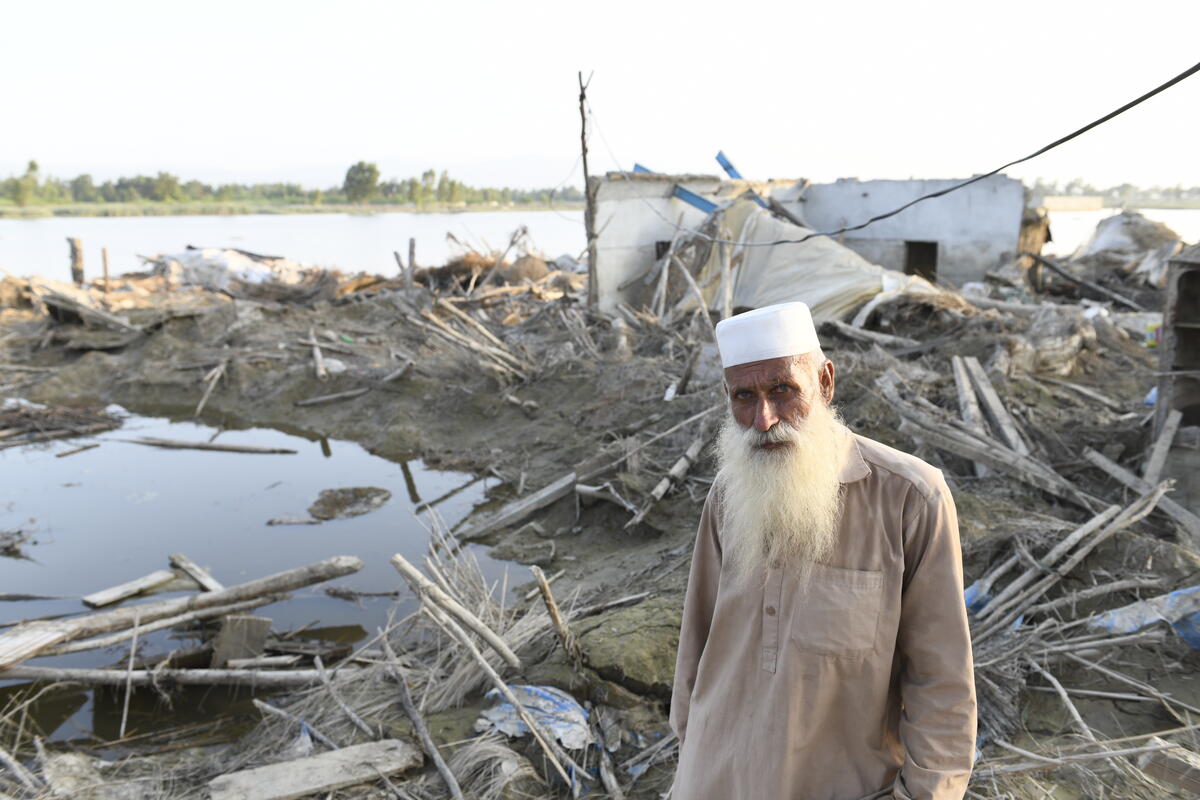Afghan emergency
Afghan emergency
Although borders remain officially closed in the countries surrounding Afghanistan, some progress is being made in our efforts to help those who have managed to make it to Pakistan. We hope to start re-locating recently arrived Afghan refugees in Pakistan into newly established sites as early as this weekend. A total of 11 new sites are ready in Pakistan and can be opened for use. The first group to be re-located is expected to be the nearly 3,000 vulnerable Afghans who have been allowed to cross into Pakistan at the Chaman border crossing in southern Baluchistan province. These people, primarily women, children, the elderly and sick and wounded people, have been staying in the Killi Faizo temporary staging post adjacent to the border at Chaman. The residents of Killi Faizo are being informed of the planned transfer to the new Roghani refugee site about 20 km away. UNHCR and the government of Pakistan's refugee agency - the Commissioner for Afghan Refugees (CAR) - will escort the convoys, which could begin as early as Sunday. This should free up room in Killi Faizo for other vulnerable Afghans seeking protection and assistance.
In addition to the vulnerable group at Killi Faizo, there are two other populations we're concerned about - tens of thousands of people at the makeshift Jalozai site near Peshawar, and the estimated 135,000 Afghans who have managed to cross "illegally" into Pakistan since Sept. 11, and who have been keeping a low profile because of fears they will be deported.
We hope to begin the transfer of the Afghans around Peshawar, including those in the Jalozai site, during the coming week. Refugees from Jalozai will be moved to the new Kotkai refugee camp in Bajaur agency. Up to 500 people could be moved daily. UNHCR will provide transport while the government of Pakistan is expected to provide security for the five-hour journey from Peshawar to Kotkai.
Kotkai has a capacity for up to 20,000 people and lies at the foot of the Durand Line Mountain in a semi-desert area. Administration, refugee registration, health and warehouse areas will be ready tomorrow. The camp is divided into four sectors that will each have a community centre, a school and a playground for the children. A mosque and a market have also been planned on the site.
Each refugee family will be responsible for pitching its own tent, if possible. Formal registration will take place in the camp the day after arrival. The plan is to transfer 500 Afghans daily from Jalozai and another collection point in Peshawar.
In Iran, meanwhile, UNHCR is readying relief supplies which are to be part of a humanitarian aid convoy scheduled for early next week for the north-west Afghanistan town of Herat. UNHCR plans to send 2,000 pieces of plastic sheeting and 10,000 blankets to help cover the needs of some of the more than 200,000 internally displaced people living in camps in Herat. The convoy is being organised jointly with the Iranian Red Crescent Society along with other UN agencies. UNHCR staff in Mashad, in north-east Iran, will be loading the supplies onto trucks from our stockpiles there. Next week's convoy will be the second humanitarian convoy to Herat from Mashad. It will also be the first time that UNHCR has sent in supplies from Iran since the United Nations withdrawal of international staff from Afghanistan. Plans are for UNHCR staff to escort the relief convoy from Mashad to Iran's main north-eastern border crossing at Dogharoun, more than 250 km away. Distribution of the supplies is being discussed with other partners in the operation to ensure the supplies get to the most needy displaced people in Herat. According to the Iranian Red Crescent Society (IRCS), whose staff escorted the first convoy to Herat on 29 October, there is a pressing need for plastic sheeting, blankets and warm clothing for the displaced population as winter approaches.









